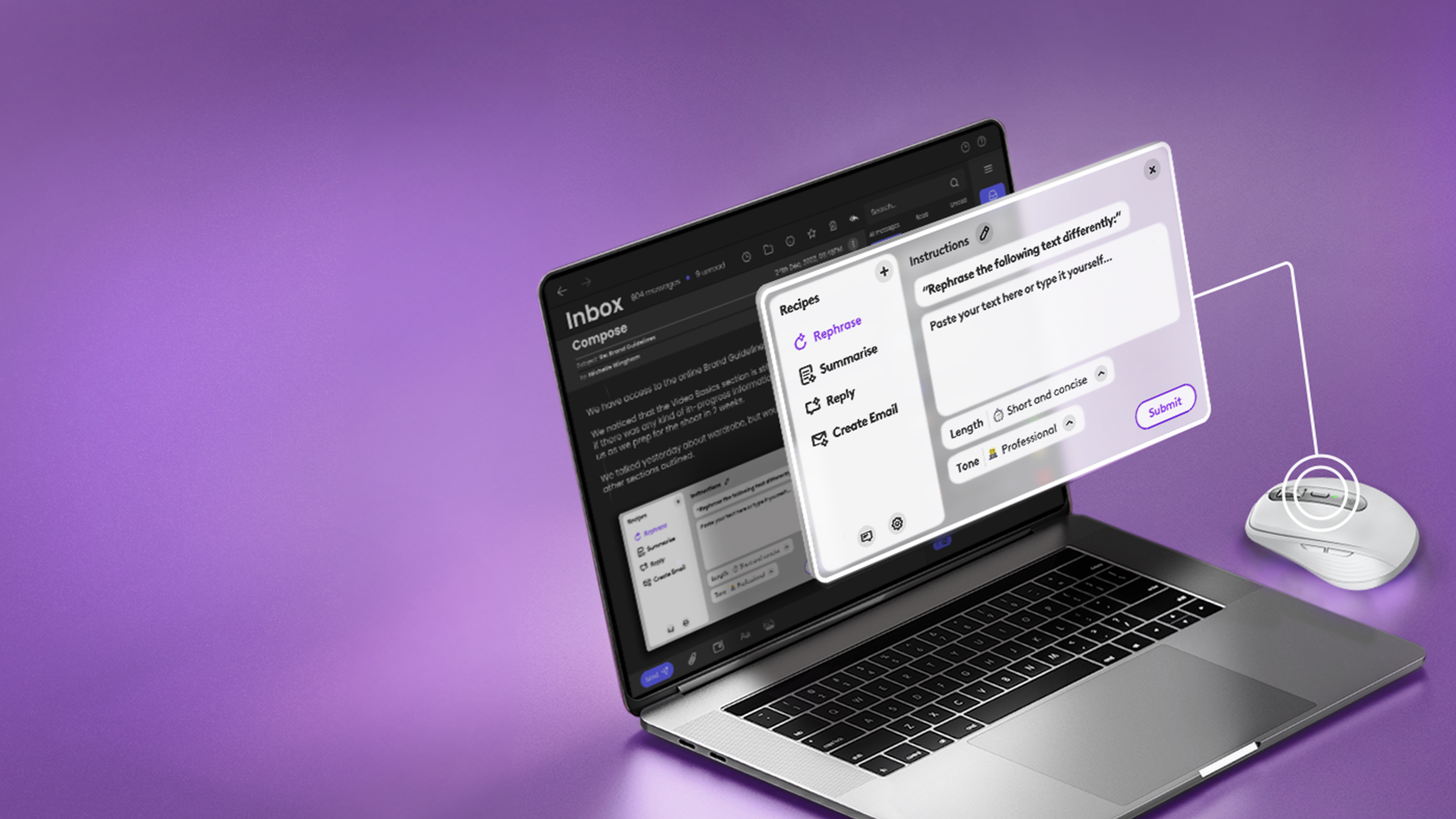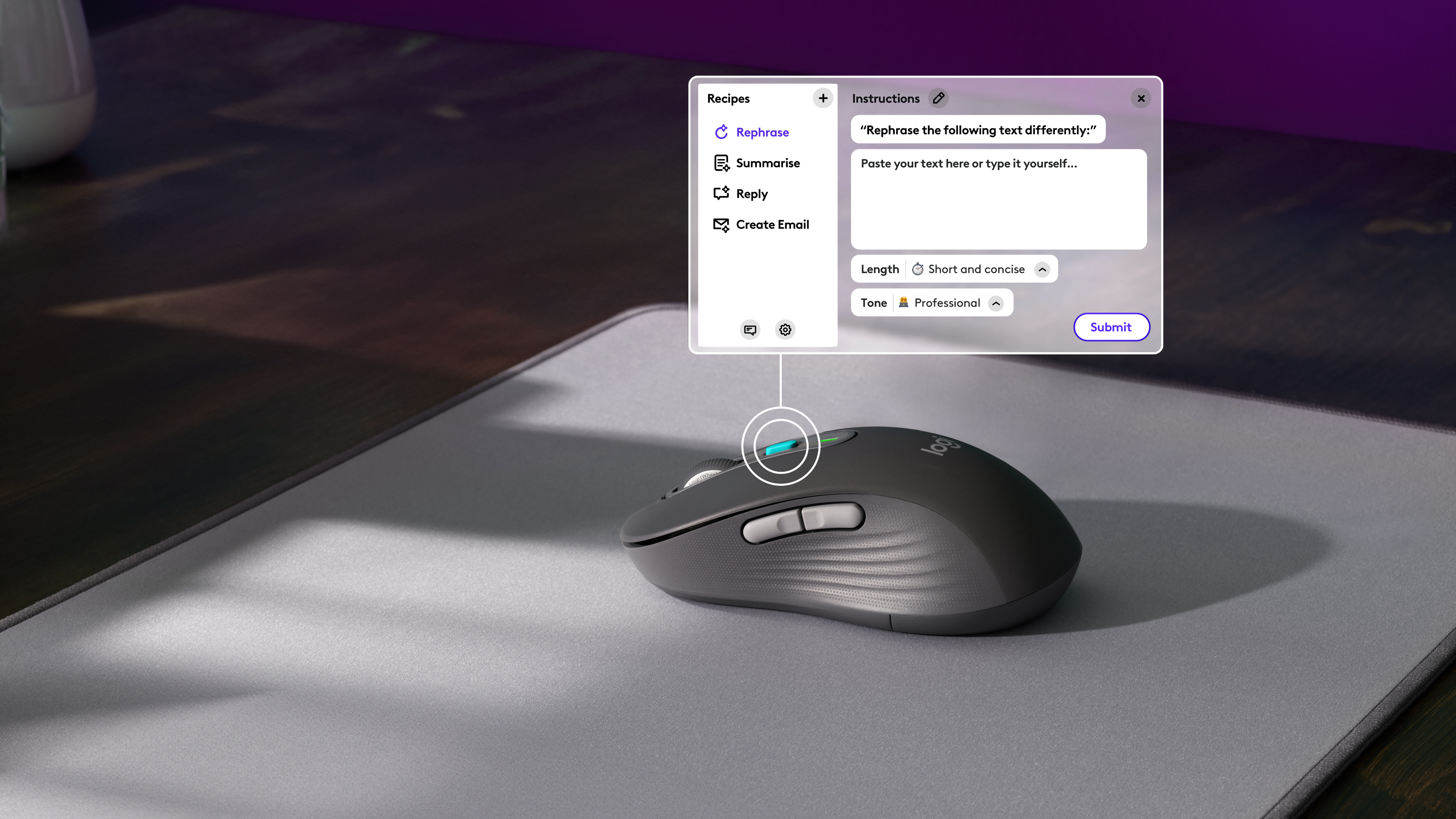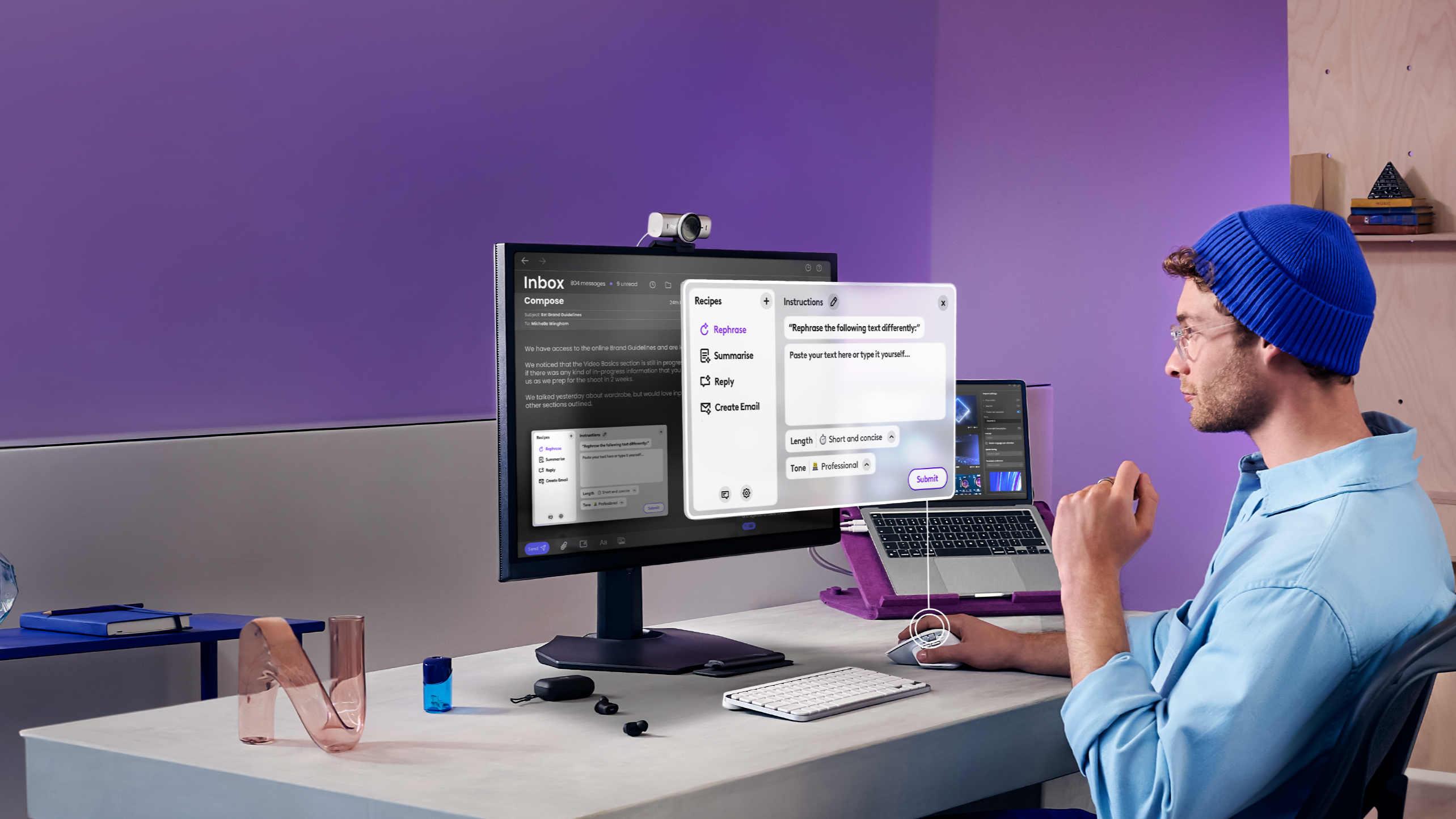Logitech has built an AI sidekick tool that it hopes will help you work smarter, not harder, with ChatGPT
Logitech is trying to become the key to effortless ChatGPT conversations

In a move that shows how mainstream artificial intelligence (AI) is these days, Logitech has launched its free Logi AI Prompt Builder software tool that isn’t yet another AI chatbot, but instead designed to help Logitech users get the most out of an existing chatbot, ChatGPT.
Logitech is also working on the hardware side of making AI-specific peripherals, launching a wireless mouse that’s equipped with an AI prompt button: the Logitech Signature AI Edition Mouse.
Who can access the Logi AI Prompt App and where
The Logi AI Prompt Builder can be accessed via the existing Logi Options+ app. This is freely available to anyone using a Logitech keyboard or mouse that’s supported by the English version of the Logi Options+ app, which includes Logitech MX, Ergo, Signature, and Studio Series devices.
Logitech has set up a site detailing the new AI tool, and you can click ‘Download Now’ to get the Logi Options+ app. Once you download and install this, you can designate a keyboard shortcut that you’d like to use to quickly open up the Logi AI Prompt Builder. Then, users can open it through the Logi Options + app or by using their keyboard shortcut, enabling them to receive recommendations about the text they've selected to converse with ChatGPT about.

Logi AI Prompt Builder will then offer you suggestions for commonly-used ChatGPT prompts, such as ‘Rephrase’ and ‘Summarise.’ You can also customize your queries within the tool, and ask it to make suggestions that take into account the sort of tone, style, complexity, and length of answer that you’d like. The latter of these is also offered by other generative AI tools like Microsoft’s own digital AI assistant, Windows Copilot. According to Logitech, this app will make for a smoother and less disruptive workflow, especially for those who make use of AI tools, thanks to you having to make fewer clicks and being able to work faster. You can check out how the tool works for yourself before downloading and installing it by watching a demo that Logitech has put on the Logi AI Prompt Builder site.
I could see this having use beyond helping people work with ChatGPT, as other generative AI chatbots like Google’s Gemini and Anthropic’s Claude Sonnet might also offer better responses thanks to Logitech’s suggestions.
Logi AI Prompt Builder is now live and accessible for free for any user with a suitable Logitech device, and is available for both Windows and Mac users via the Logi Options+ app. The dedicated Logitech Signature AI Edition Mouse is currently available exclusively on the Logitech.com website for $49.99 in the US and £54.99 in the UK.
Sign up for breaking news, reviews, opinion, top tech deals, and more.

A vote of confidence for generative AI
This launch has piqued my interest greatly because it’s a pretty substantial move from a company that mostly specializes in PC peripherals, which suggests that it’s not just computer manufacturers that are making products that embrace our AI future. It’s also pretty indicative to me of companies like Logitech being convinced of generative AI’s staying power.
It’s one step closer to AI being a normal part of our work and everyday lives, and reminds me of Microsoft’s plans to add a Copilot button in the keyboards of new laptop models. I’m keen to try a tool like this for myself and see if my workflow becomes smoother, because if that’s the case, Logitech, Microsoft, and others could be on to something.
You might also like...
Kristina is a UK-based Computing Writer, and is interested in all things computing, software, tech, mathematics and science. Previously, she has written articles about popular culture, economics, and miscellaneous other topics.
She has a personal interest in the history of mathematics, science, and technology; in particular, she closely follows AI and philosophically-motivated discussions.